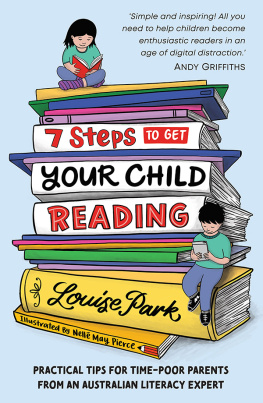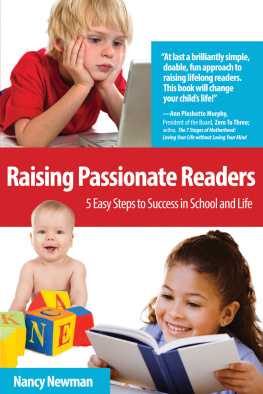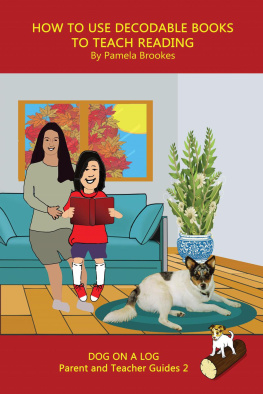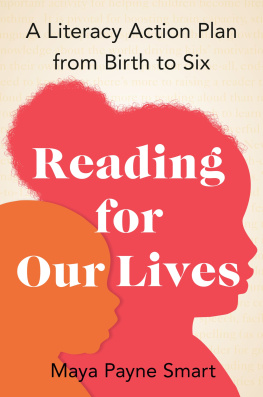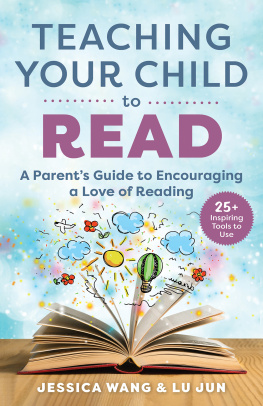
In the first chapter, we looked at what our brains do when we learn to read. I touched on what happens in the brains of children who struggle to master reading or who have dyslexia. And just to recap, I said that a struggling reader is not lazy far from it! They are not stupid, either. The danger is that they will believe they are if they dont progress or get the help they need before they become disengaged.
Struggling readers who dont get the intervention they need will not get better at reading, and they will fall further and further behind. The sooner that intervention happens, the better. Quite frankly, its important that parents dont wait until someone else raises the flag. Many childrens struggles are picked up and they receive the evaluation and help they need. However, some may never be picked up and these children will struggle through life, never knowing why they have difficulties and what could be done to ease them.
No one wants their child to slip through the net. Teachers do their best, but youre the one who sees your child one on one the most frequently. If you have concerns, discuss them with your childs teacher in the first instance.

| Gen Alpha and reading difficulties |  |
Reading, writing and understanding is fundamental for success across every subject area, so its vital that no child gets left behind. And much can be done to minimise the impact of reading difficulties on a childs literacy journey, particularly in the early years at home, at school and with professionals, if required.
If your child is struggling with learning to read, know that:
* Dyslexia is not an intellectual disability.
* Not all strugglers have a reading disability. Many simply have not developed the reading skills necessary to thrive, for a variety of reasons. They may be labelled with reading difficulties but will soon master the skills needed with tailored, individual, intensive teaching that cannot be given in a crowded classroom.
* Almost always, these children are bright, dedicated and keen to learn. Their brains are simply working in a different way. Once diagnosed, in many cases much of this can be corrected.
* Early assessment and intervention is the key to academic success and happiness.
There are a number of learning difficulties that can impact a childs experiences at school. For the purposes of this book, Im going to focus on working memory, dyslexia and dysgraphia, as these are the most common difficulties that affect a childs ability to acquire literacy in a struggle-free way.
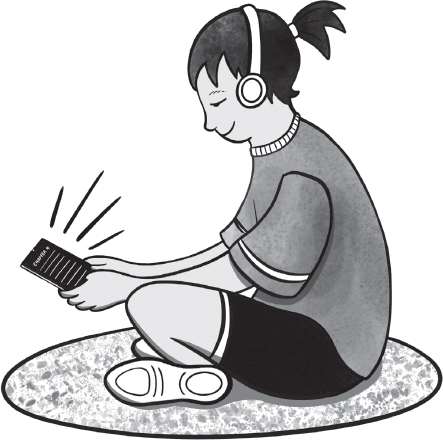
Working memory
Working memory is where we store information that we know were going to need to use. Its like the notes app of our brain. Children with poor working memories struggle to grab and store the information they need, and this can wreak havoc when theyre trying to master learning to read.
Heres a mild case of poor working memory in action: you make a list of groceries that you need, but when you hit the supermarket you realise you left it at home. You do your best, but when you get home you find youve forgotten several things you needed. Had your working memory been firing on all four cylinders, you would have most likely nailed the shopping without the list.
Working memory problems are one of the biggest issues in reading difficulties. Children need their working memories when reading to:
* read an unknown word
* decode an unknown word
* put information theyve read into their own words
* comprehend what theyve just read
* problem-solve
* retell and sequence events in a story
* follow a set of instructions
* keep their place on the page.
Could your child have working memory problems?
This checklist will help you identify whether your child might have a weak working memory. Its a guide to the sort of things to look out for.
Answering yes to one or two of these points does not necessarily mean that your child has poor working memory. Some of these points may indicate other learning difficulties such as attention deficit hyperactivity disorder (ADHD), but if you answer yes to several of these points, its a red flag for working memory and is worth investigating further. A proper diagnosis from a professional is the only way to find out if indeed your child has working memory problems.
* Next time your child wants to tell you something, have them wait until youve finished a task, then ask them to share it with you. Have they forgotten what they wanted to tell you? And does this happen often?
* Does your child have difficulty following a sequence of instructions, such as collecting their sports bag from their room and then collecting the library books that need to be returned from the hallway?
* Does your child constantly lose or forget things?
* Does your child struggle to retell a simple story youve just read to them?
* Does your child forget what theyve learned quickly?
* Is your child a big daydreamer and do they appear to be distracted or inattentive on a regular basis?
* Is your child a poor problem solver?
* Does your child have difficulty copying from the board?
Recommendations for working memory problems
* Obtain a positive diagnosis from a doctor, speech pathologist, educational psychologist or other appropriate professional first, and follow their recommendations. These people are invaluable as the key to removing any roadblocks your child may have.
* Get your child off the devices and get them writing by hand. Revisit the chapter dealing with for advice on this and why its important.
* Work on following instructions with them. Start with a single task, then add one more thing, keeping pace with your childs limits until they can handle a number of steps in an instruction.
for more on this.
* Play card games like Memory and Go Fish. Use real cards, not card games on devices. Revisit the chapter on as a reminder of why this is important.
Dyslexia
Around 80 per cent of children identified with reading difficulties have dyslexia. It causes problems with reading, spelling and sometimes comprehension. Children with dyslexia have trouble processing speech and recognising words, and they often have problems with their working memories. They struggle with linking the speech sounds in words with their printed versions.
Like all learning difficulties, these problems can range from mild to severe. Professionals consider these two groups most at risk of developing dyslexia: a child from a parent with dyslexia, and a child with a spoken language problem in their early years. If your child falls into one of these groups and you are concerned, seek advice from your doctor or their teacher first. Theyll be able to refer you to the right professional for assessment.
Observing your child from preschool and through the primary years and knowing what to look for will help if there is a problem. Observing and collecting information is important if your child eventually needs to be seen by a professional. This checklist shows things you can look out for, but it is not a diagnostic tool, and its important to remember that children develop at their own rates. Consultation with your childs teacher should be your first step if youre worried.
Next page
